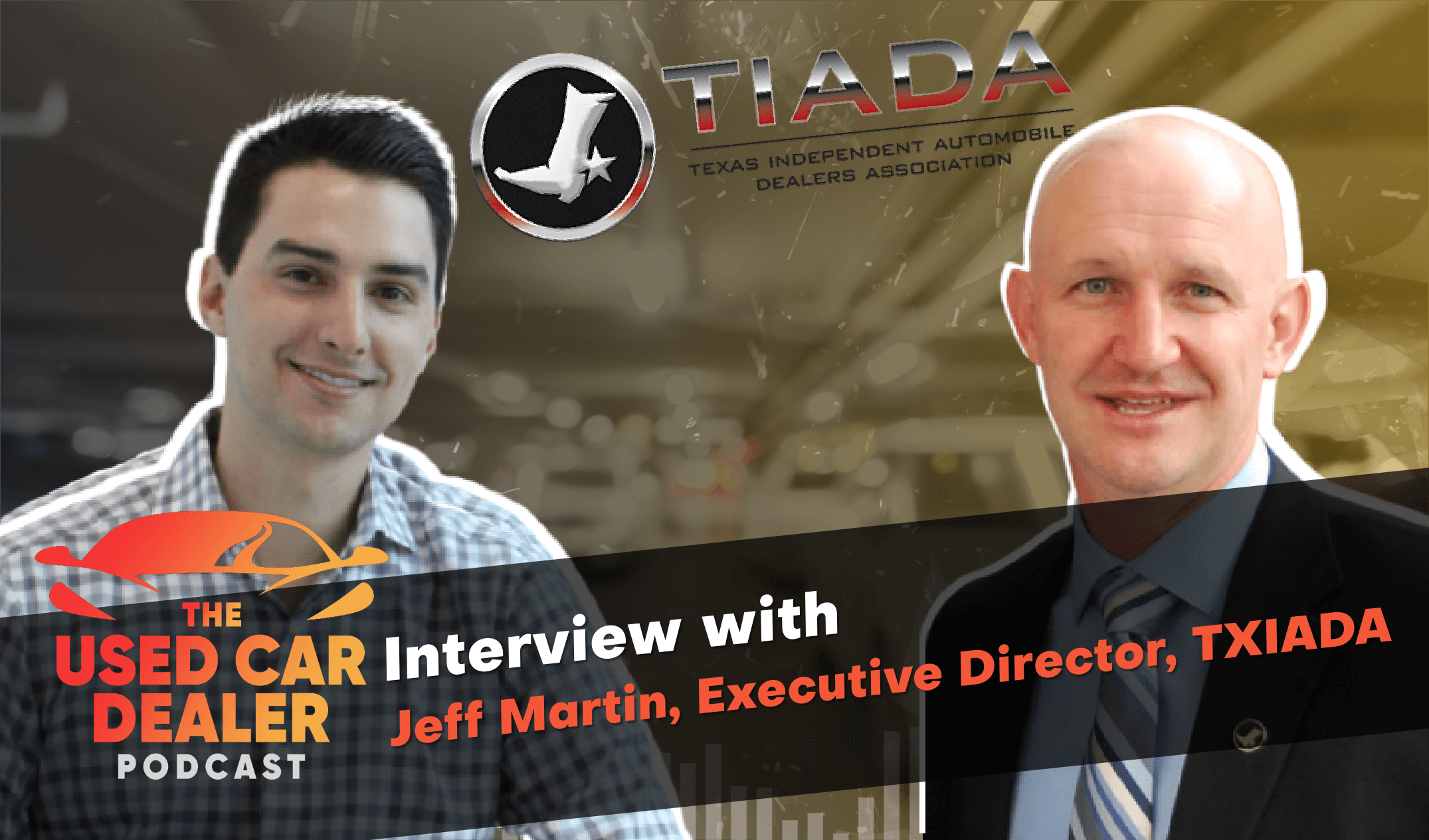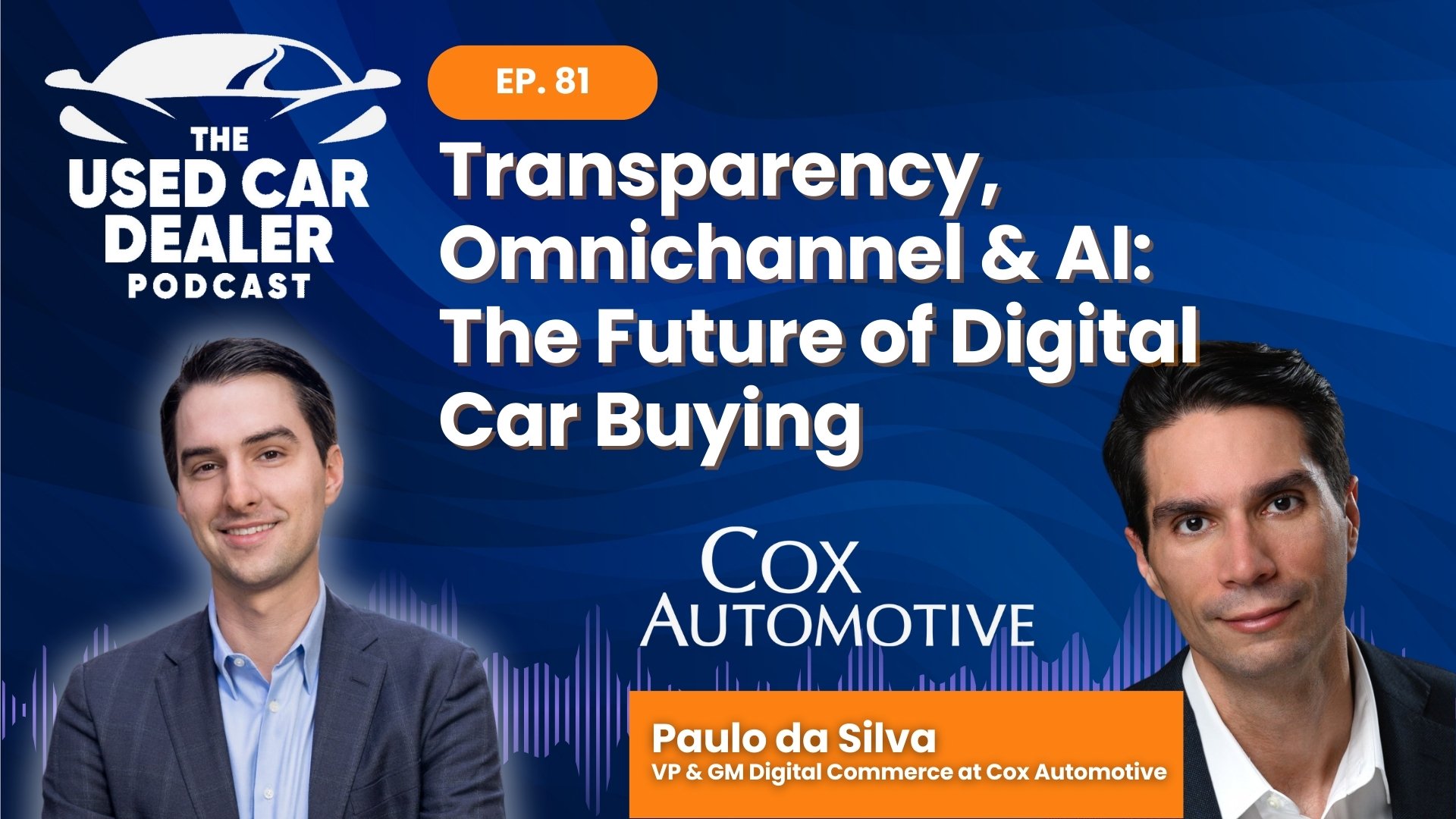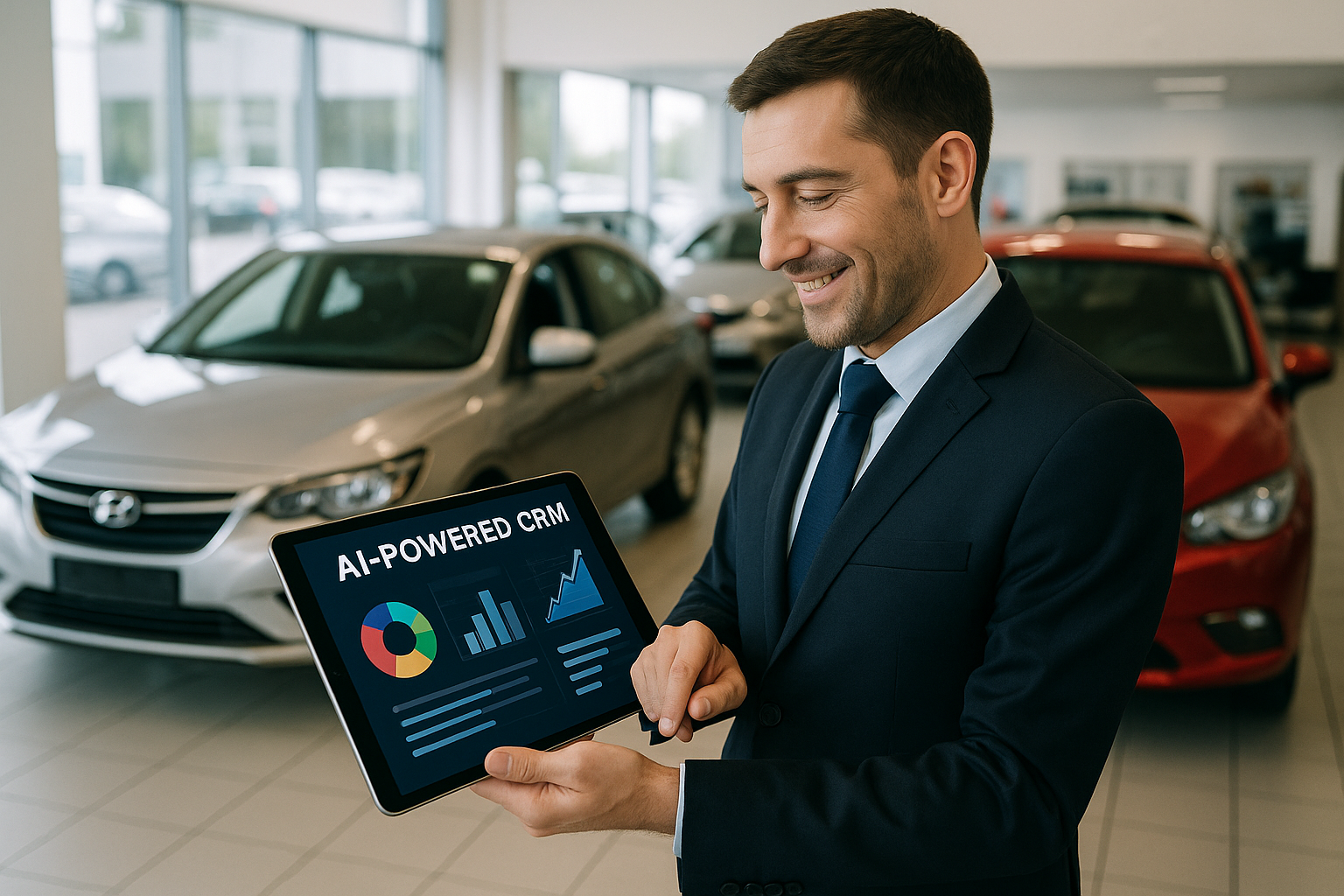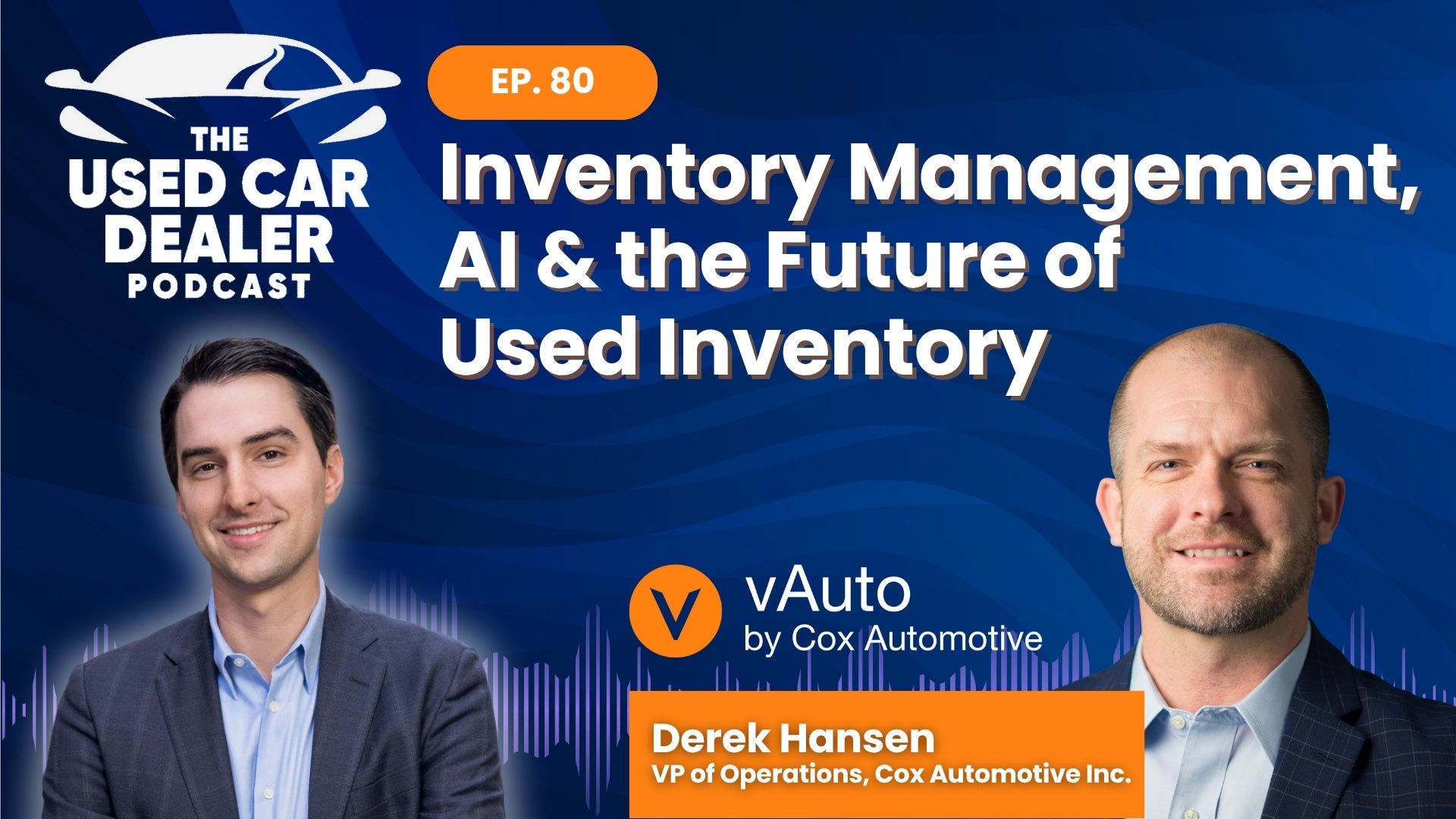Zach: Zach here and we have a really timely guest on the podcast today, Jeff Martin, who’s the Executive Director of the Texas Independent Auto Dealer Association, which is one of the largest independent auto dealer associations in the country. And Jeff is also Texas-based and I can’t believe I’m saying this but it’s snowing there. How are you doing Jeff?
Jeff: I’m doing great Zach, thanks for having me. A little unusual right now to be sitting here at 7 degrees in Texas.
Zach: So to get things started out, tell us about how you got into the business through the Texas Independent Auto Dealer Association and a little bit about your background?
Jeff: Yeah, absolutely. So I’ve been in the non-profit association world for about 24 years now. I was working for a teachers’ association and started doing a little bit of consulting and one of the associations that I was doing some consulting for was the Texas Independent Automobile Dealers Association. And in visiting with their executive director at that time it really felt like there were a lot of members’ opportunities as well as other opportunities for growth in that particular space. After visiting with them for probably not even a month, he (executive director) let me know that he was thinking about retiring and asked if I was interested in the position and here I am now 14 years later.
Zach: Wow, and for those unfamiliar with TXIADA, give us a high-level about the size and impact of it?
Jeff: Yeah, absolutely. So we are just over 1300 members, roughly 1100 of those are independent automobile dealers but what we like to say--there are about 14,000 licensed dealers in the state of Texas, independent licensed dealers in the state of Texas--but what we like to say is we represent about 68% to 70% of all of the used car sold by independent dealers in the state of Texas, we represent that population.
Zach: Wow and if I’m not mistaken, Texas has the most dealer licenses for used car dealers in the US?
Jeff: It’s my understanding. I mean it’s interesting because it depends on how you issue a license in California, Texas. We’re a little different in Texas, we issue it by rooftop. So for example, if you look at CarMax for example they’ll have roughly 18 to 19 license dealers in Texas and they license each individual rooftop. In some other states, you’re gonna have multiple locations under one license. The short answer to your question is yes, Texas is probably the largest state with independent licensed dealers.
Zach: So, a lot of used car dealers, they’re aware that IADAs exist in their state but they may not be members, why should they join an IADA and what does the Texas Independent Auto Dealer Association do specifically for used car dealers?
Jeff: Yeah that’s a really good question. Obviously, the easy answer for me is everyone should be a member of the association but the reason that they should be a member and it’s not just about independent automobile dealer associations, in my opinion, it’s about associations in general.
Now if you’re in a profession or if you are in an industry and that industry is your voice, you need to be a part of that. Associations are only as strong as the members who are willing to join your association. And then furthermore Zach, the members who are willing to be active with that association. I don’t own the association, none of our staff own the association. It’s a member-owned, member-governed association. If just in general terms, you think about the way governments work, a governing body is only gonna be as strong as the people who are willing to be actively involved in that.
So, if you are an independent automobile dealer or in any profession or industry and you’re not part of that association, I always feel like you have a hard time sitting on the outside complaining about what the association is doing for you if you’re not willing to be actively involved in it. So that’s the short answer, everyone should be involved because that's the voice of your industry, that’s the group that’s out there trying to protect your industry, and we can only be good as the input that we’re given. And so, if you’re not a member of the association, you’re not participating in the committees, you’re not participating in the channels to get your message heard then your view frankly is not being heard.
And the second part of your question is, to me, that goes hand-in-hand as far as why someone should be a part of the association because it is your voice. So what the association does is, you know associations, their main function is to grow the influence of that association and then ultimately take that influence and help protect, and grow and educate the members of the association. We’ve got benefits as do every association.
We have discount benefits for our members, we’ve got the education that we put in place for our members to try to help them become better at their craft or better within their industry but again at the end of the day, it’s about growing influence and without the dealers joining the association it makes it more difficult for that association to be powerful and that’s essentially what we’ve done here in Texas is to try to focus on growing the membership and explaining that this is the voice of your association. If you care about your industry there is a good way to get involved and have a voice.
Zach: So what was 2020 like from the lens of an IADA director and what problems did you help dealers navigate?
Jeff: Yeah that’s a really good question. Obviously, because 2020 was unique we can’t really compare it to something else and say, “man, remember back in 19 whatever because 19 whatever just never happened”. We haven’t been through a pandemic.
I think the easiest thing for me to point at is, frankly, it’s really easy for associations when it's very obvious what you need to be working on, you know it’s not always super obvious that this is the issue that we should be working on but the biggest question for us with all the local orders and the state orders and I’ll say the national orders even though there weren’t really ever any national orders that were handed down it was kinda left up to the states and for us even the cities and the counties.
And to kind of help our dealers navigate, who could be open, who couldn’t be open, if you were open, what did you have to do to be compliant and be open and then some of that too is what’s the enforcement gonna look like. You know we have over 150 counties here in Texas and obviously more cities than that and the state didn’t originally come out with a specific order.
Although in fairness I’ll say the state never shut down the Department of Motor Vehicles either. So, we took that as an indication that we could be open. We did need to be in a position as dealers to be able to provide transportation. In a state like Texas, public transportation is not readily available everywhere. People were still having accidents in cars. They were still having cars that needed to be replaced. And so we needed to make sure that our members understood their role in that. And so it was just very very obvious in 2020--starting really in the February to first of March, when we started, the pandemic really was kind of in full swing here in Texas--to help our members navigate through that in March-April then you have issues like federal protection program, how’s that going to affect our member and their employees as an employer, how’s that going to affect you. But then also there’s this new money that's gonna be in the economy and how can our members that--again they’re providing transportation and working with their customers to make sure that the customers stay in their car, you know with customers who are losing jobs and waiting on some of that payroll protection money to be able to stay in their vehicles.
So those are the things that we focused on navigating and I would say in the lens of an executive director that was really our focus: how can we help our dealers stay open and stay productive. You know some of the things like conferences and education, for us it was unique because we had to look at new ways to deliver the same message or how we’re gonna be able to make sure that our members are staying compliant, or how do we get best practices out in front of our members when we’re so used to having our in person conferences which--you’ve been at our conference numerous times and we’ve always felt like they were very very successful--but I think for us what we had to do is to say: how can we deliver that same message. There are some members out there that are depending on us but just to a different platform and those, as an association person those are kinda unique, interesting, fun, challenging times because we've just never done anything like that before.
Zach: How have you seen used car dealerships evolve over the last 14 years that you’ve been running the Texas Independent Auto Dealers Association?
Jeff: Wow, 14 years. Yeah, you know the biggest evolution has certainly been technology and I think it’s kind of the throwaway easy answer because technology seems to just change so rapidly and then at such a broad answer too. Technology in the vehicles, technology in purchasing the inventory, technology in shoppers online, and then certainly over the last year, technology in being able to deliver vehicles.
We’ve got a lot more of our members who are looking at touchless delivery points which--there have been some used car dealership that are on the cutting edge of that for the last 5 or 6 years but it really--no one was forced or push to kinda go into that kind of direction and over the last year we as an industry and as used car dealers have kind of been forced to move in that direction
So technology is kind of the easy answer but also funding. It felt like 14 years ago when I first started with the association, if you wanted to get into the used car business, because of the price of used cars and the availability of inventory, it was much easier for people to get into the business and what I’ve really seen in the last 14 years, it's much more complicated, it’s extremely expensive and a lot of that expense has to do with the being able to find the inventory.
I think that it’s such an interesting business Zach. I didn’t grow up in the auto industry and so this was new to me, but it’s such an interesting industry when you don’t make your own widget. We’re dependent as used car dealers for the widgets to fall to us. We could have all the customers in the world but if you don’t have the cars to sell on, if you don’t have the inventory to provide those customers with what they need, you’re in a really unique situation. It’s not like we make donuts and we can say, let’s just get more flour, let’s just make more donuts because we have more customers and that part I don’t know that there’s other industries, other than if you’re an antique business or something like that, where you’re dependent on your product to fall to you.
So I think with the new car dealers probably holding on to that inventory a little bit longer, it’s created a real squeeze for the people that were in that business. And that squeeze is affected by the people who have the money to be able to go out and buy that inventory that certainly has gone out over the last 14 years. So, I say the capital that it takes to get into the business and why that is driven kind of by the inventory of the supply team if you will and then the--it’s a complicated business and the technology, while technology is making things a lot easier for our members you also have to be willing to kind of take that plunge and say I’m going to invest in search engine optimization, I’m gonna use my website differently than I used my website in the past and you have to because the shoppers are so different now than it used to be. And you know Zach, certainly you’re an expert in that area you know that better than I do. That’s the area that I’ve seen changed the most out of the last 14 years
Zach: So, compliance, it’s often overlooked by used car dealers or not taken as seriously as it should be. From your lens, what have you learned about the importance of compliance for used car dealers?
Jeff: Yeah that’s a great question. That’s one of the things that we really focus on as an association here in Texas. I mean we consider ourselves kind of the know-it-all when it comes to compliance, and if we don’t know the answer, we know who to call to find out what the answer is.
And it’s overlooked because it’s not any fun. It’s kinda like taking your medicine and dealers need to be compliant and you need to stay compliant and you can overlook it and overlook it and then all of a sudden you know one of the state regulators shows up or something happens and then you’re scrambling around to try to figure out have I been doing things right for the last 4 years. Well, it’s a little late at that point to--once the regulator shows up or once the state agency shows up--to say’ man have I been doing things appropriately over the last 4-6 years.
So it’s something that you have to stay kind of focused on. And what I tell our members is make sure that you have someone, you have some mechanism in place to at least be reviewing that compliance policy or that compliance strategy, and there are a lot of new players that are kind of getting into that field to try to help dealers stay compliant because it is more confusing.
And certainly, at the national level, we’ve seen with the CFPB, I guess they’ve been around for almost 7 years now. And certainly, they carry a very big stick for auto dealers and auto lenders. And so I think that it’s probably more important now because you see things that the federal government--not that it wasn’t important before but it was probably a little bit more manageable.
And I’ll also say this when it comes to compliance: as long as we know the rules, our guys can stay compliant. It’s when the rules are changing and when we don’t really know. And I’ll give you an example we always felt like with the CFPB they took the position that if we see you doing something wrong we’ll come out and we’ll let you know what it is that you're doing wrong and we’ll let you know in a way of a fine. Man, that’s hard to stay compliant that way.
Now CFPB has been around and it’s a little bit more of a maturer situation or agency at this time but if there are rules and regulations in place and we understand what those rules and regulations are, we can educate our members and our members will stay compliant.
And look, rules and regulations are there for a reason, they’re there because we wanna create an even playing field and allow everyone to be successful but make sure that everyone is kinda playing at the same level in this industry and so when someone is not compliant and you have a number of other dealers who are compliant well those dealers it’s costing them money to be compliant and you have someone else who has opted to or doesn’t know or for whatever reason, they’re not compliant, there probably need to be some regulation in that particular area.
But the key is we have to know what that regulation is and I think that’s where associations play a very important role. They have to be working with and visiting with and playing a major role as a stakeholder with the state agencies and with the national agencies and continuing to make sure we are being represented as an industry and explaining to them as long as you tell us what the rules are--certainly we want some input and what those rules are going to be too.
But as long as you tell us what the rules are we can be compliant and you know I’ll say we’re very fortunate here in Texas, we have a great regulatory environment and we’re very active. The two agencies that regulate our guys the most are the Texas Department of Motor Vehicles and also the Consumer Credit Commission, we’ve got really good relationships with both those agencies. We’re very active down at the Capitol and here in Austin and that’s key to being a successful association.
Now the first part you’re asking about was making sure that you’re getting the input from the dealers and then the second part of that is making sure that that input is being delivered to the state agencies and to the legislators or the policymakers or rule-makers to say this is how it would affect that industry and as long as we’re doing that I think that you can create a really good environment and regulation doesn’t have to be that painful.
But being actively involved in it is absolutely the key and unfortunately, it gets overlooked sometimes because it’s becoming more and more expensive and again the other part is it’s no fun. People didn’t get into this business to go ‘man, I really wanna know everything I can about regulation’. They got into this business to sell cars and regulation is just a part of that
Zach: And what I often hear dealers say is that ‘oh they’re only gonna go after the larger stores, the multi rooftops’. Do you see smaller stores getting fined and getting in trouble from a compliance standpoint?
Jeff: Yeah, you know I wouldn’t say that there’s any statistics on it I mean I’m sure there are statistics. I don’t have the statistics and so what you’re hearing there is anecdotal information. And so if you go after a big store and let’s say that there’s going to be like restitution ordered. Well if you go after a large dealer and an agency orders restitution to consumers well the number is gonna be significantly larger because of the number of consumers and if that exact same agency imposes some order of restitution on a smaller dealership that might not make the headlines.
But I’ll tell you it affects that small dealer as a percentage of their overall revenue or income or their bottom line. It affects them significantly. It might not make the papers because you know it may be $25,000 in restitution where the exact same issue that a bigger dealer has an issue with or they’re required to pay restitution. If it’s $3 million in restitution I expect that newspapers and news media it's a little more exciting to talk about $3 million in restitution than a $2500 or $10,000 but it affects that small dealer the same and I think as an association we’ve got to do our part to make sure that we’re looking out for the interest of both those parties
Zach: To shift gears for a moment, what are your thoughts on online dealers like Carvana or Vroom which acquired Texas Direct?
Jeff: Yeah absolutely. Both of those, by the way, are members of our association and so I look at it like this, this industry and every industry Zach, you know they’re going to change and we need to make sure that they have a place in our association. And as an industry as those changes takes place and as those changes happen I think we need to make sure that as an association we’re a part of that.
As I was mentioning earlier now talking with policymakers and talking with legislators when there’s some--a lot of people like to say when there’s disruption in the industry and certainly, you can say that that’s disruption but when someone thinks outside the box at TIADA anyway, we welcome that innovation. We don’t ever feel like--you know an association in my opinion should be that way in general. Associations need to represent everybody. They don’t need to pick and choose whether they’re gonna represent the big guys or little guys or the buy here-pay here guys or the retail guys or the car delivery guys or whatever the case may be.
And part of that Zach is back to that level playing field that we’re talking about earlier, you know. Let’s make sure that everybody’s playing on a level playing field as long as that’s the case, speaking from the perspective of the association, you know we welcome those guys, let’s say they’re both members of TXIADA now, that may not be the case in every state but we certainly welcome that.
Zach: What are you optimistic about for 2021?
Jeff: Wow, 2021. Well it’s funny the joke here in Texas right now is, as we’re sitting under a historic storm and cold snap, everybody is saying ‘man, you thought 2020 is bad but you said 2021 is gonna be a lot better’. It certainly doesn’t feel better right now as half of our state is out of electricity.
The main thing I’m optimistic about is trying to find ways to get back together. Associations are--it’s imperative for associations to get together. This is great, it’s great seeing you here on this zoom call and visiting with you and I think that we’re all trying to find the best way for us to be able to make this work in a scenario that we’re currently in or the situation we’re currently in but, man Zach, do I want to see you at our conference.
You know I really wanna physically see you and all the dealers and you just get so much more out of our conference, our education. You know, you’re a professional when it comes to going to the events and speaking and while your presentation is very important people get a lot out of that, the number of people to come up to you after a presentation and when I have a one-on-one conversation or they want to follow up with something that you said, that’s invaluable. And that’s what I’m looking forward to the most.
Now your question was what am I looking forward to and what am I optimistic about and looking forward to and what am I optimistic about might not necessarily be the same thing. I am optimistic though but I think it’s mainly just because I’m kind of optimistic by nature. We are scheduled to have a live conference this year. I’m hoping and anticipating the vaccine.
I’ve also seen that our dealers are pretty confident in going out, their dealerships are open, they’re operating, they have found ways to socially distance and to be effective during the pandemic and I think it's imperative upon us as an association to have that same resilience and to find ways to be effective and to make it work and we’re doing that. We’re looking at our expo, we’re looking at our education. We had two live or in-person board meetings and some of that was for us to see if we can do the social distancing, can we make this work and still keep confidence high and make people feel comfortable coming to an event knowing that we’ve got their best interest in mind as it related to health and in this situation, we certainly wouldn’t wanna put anybody in a bad situation there. So I mean that’s what I’m optimistic about and certainly, I’m very very hopeful that we’re gonna get to that point as well
Zach: Awesome, I’m looking forward to it as well and hopefully coming out to Texas in person, and Jeff it’s been a fantastic conversation thank you so much for coming on the Used Car Dealer podcast
Jeff: Same here, Zach, appreciate it and hey thanks for what you’re doing too. I think finding mechanisms like this to get messages out to our members, to non-members, to auto dealers, is unbelievably valued. And so I know you’re always on the cutting edge and hats off to you for kind of helping lead the way there. I really appreciate it and thank you for having me on!
Zach: Thanks, Jeff




.png)




.jpg)
.jpg)
.jpg)
.jpg)

.png)
.png)
